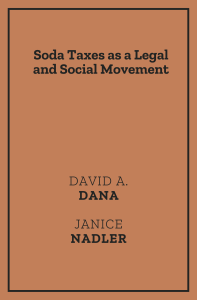In this project, we seek to explore whether corporate endorsements and implementations of practices influence public support for legislation and regulation that would generally mandate such practices. For example, does McDonalds’ public embrace of certain animal welfare policies, such as discontinuing the sale of eggs raised from “caged” hens, affect McDonalds’ customers support for federal or state legislation banning the use of cages for egg production? Does a major energy company’s public recognition of climate change and commitment to mitigate their greenhouse gas emissions make customers and shareholders more accepting of climate change as a factual matter and more supportive of federal or state climate change legislation? Or does it only decrease support for federal or state legislation by suggesting to the customers and investors that the private sector is adequately managing the problem of climate change, thus obviating the need for a legislative response?
Corporate adoption of practices that are the subject of political contestation are increasingly common. Indeed, because of political deadlock in some states and at the federal level, some public interest groups now are more focused on shifting the positions and practices of major corporations than they are on direct political campaigns for legislative or regulatory change. While scholars have addressed the effects of popular media and the rise of a hyper-politicized media (Fox News, MSNBC) on popular attitudes and the production of law, scholars have largely ignored the possible effects of corporate endorsements and implementation of practices on popular attitudes and hence the lawmaking and regulatory processes. We seek to fill that gap in the literature, building on experimental surveys, case studies and theoretical analysis.




